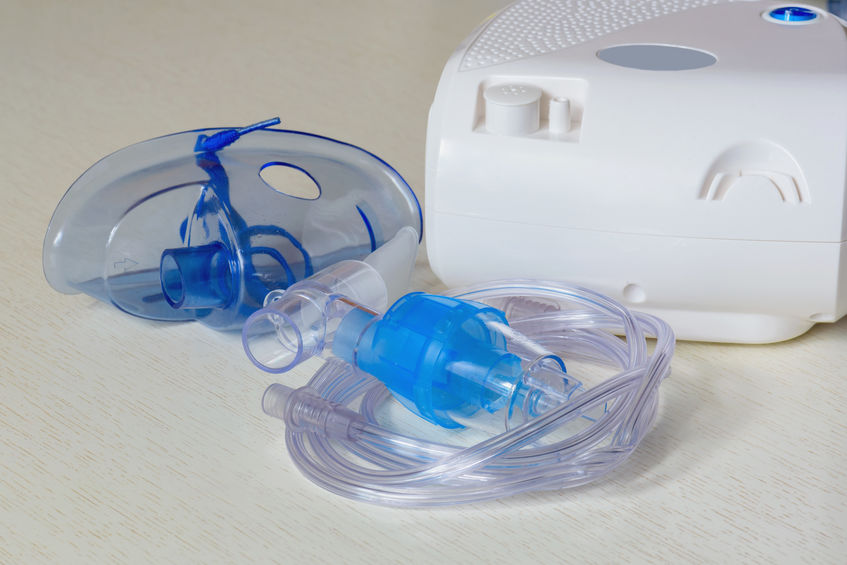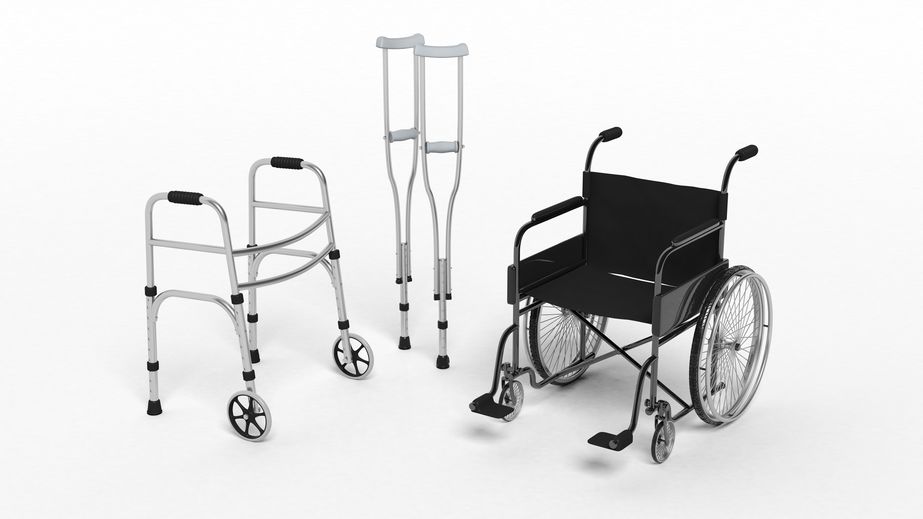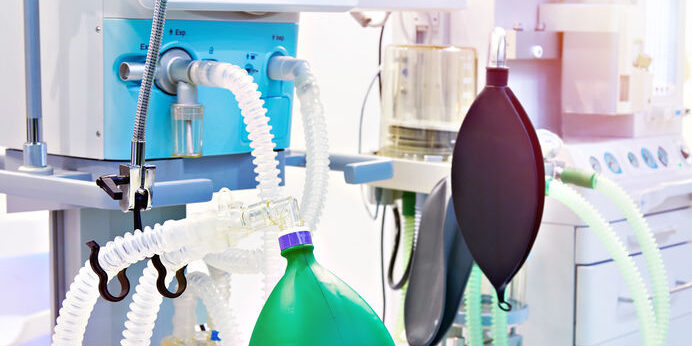
The current COVID-19 pandemic has presented unusual and extraordinary challenges to our health care system. As this virus continues to spread and hospitals reach capacity, we will see an increased need for home treatment for a number of health issues, including those directly and/or indirectly related to COVID-19. As hospitals discharges become more prevalent in an effort to manage existing resources, the resultant strain on durable medical equipment (DME) providers (particularly for suppliers of home oxygen and ventilators) will significantly increase. It is critical to have a strong, well-supported and financially viable DME infrastructure to allow patients to recover at home during this crisis and beyond.
The federal government has created an untenable situation for the DME industry through draconian cuts in both the Medicare and Medicaid programs. DMEs have been systematically decimated by a Medicare system that has systematically eliminated its number of DME providers. Over 40 % of all DMEs have closed throughout the U.S. in the last 8 years due to the reimbursement cuts imposed by the Medicare competitive bidding program. Additionally, in January 2018, federal law 42 U.S.C. § 1396b(i) (27) (the 21st Century Cures Act) placed a limit of the amount of federal reimbursement that states may receive for certain items of DME. Specifically, if any state’s annual Medicaid spending for certain DME items, in total, is more than what Medicare would have paid (at its lowest price, including its Competitive Bidding Program), then the Centers for Medicare and Medicaid Services (CMS) is required to take back federal matching funds for any amounts more than what Medicare would have paid., as well as the CURES ACT to the Medicaid programs in each state.
Respiratory Supplies are on a Major Global Supply Crunch due to COVID-19
Ongoing chronic home care patients and their loved ones worry about receiving life sustaining equipment from DMEs that allow them to stay at home. This untenable situation is no more evident than expressed in this heartbreaking statement by the parent of an 8-year-old ventilator-dependent patient:
“Ventilator circuits and other respiratory supplies are on a major global supply crunch. The DME industry does not have the purchasing power to compete with the federal government, state governments and big hospital systems to get supplies. Medicaid reimbursement rates for home ventilator patients is stunningly low, and the patient pool of home ventilator patients is served by an exceedingly small pool of suppliers due to the complexity of patient care and low reimbursement rates. If home ventilator patients cannot receive the supplies they need to live safely at home, they will either die at home or be forced into overcrowded hospitals, where they will be exposed to unintended infections, including COVID-19. I do not fear that the ventilators will be rationed and that someone will come to our house and take our son’s ventilator away from him. But I do fear that the system we have in place to take care of home ventilator patients is underfunded and strained during normal times, and COVID-19 will break the homecare supports that many patients need to live safely at home.”
As a result of this, and many other anecdotal reports, patient families are washing and reusing disposable supplies, repairing systems with super glue and duct tape, replacing human medical supplies with veterinary supplies, and exchanging supplies with strangers on the internet. In many instances, oxygen tanks returned to suppliers for refill have been diverted to facilities and emergency rooms where there is a perceived greater need.
To learn more about the role of DME for those who require CPAP, Oxygen, and Non-Invasive Ventilation, see our distance learning courses for Sleep Technologists and Respiratory Therapists in the U.S. and Canada:
“CPAP and Oxygen – Matching Systems to Patient’s Needs”
Course Description: This course provides the participant with an understanding of the dual medical problems of a sleep disorder and pulmonary disease. The participant will learn about the history relative to the recognition of the dual issues and the therapies that will be used to treat them. Finally, the participant will understand the best practice in matching the treatment modalities to the patient needs.
- AARC Approved Online Course
- AAST Approved Online Course
- BRPT Approved Online Course
- CSRT Approved Online Course
“Non-Invasive Ventilation”
Course Description: This course provides an overview of the treatment modality, Noninvasive Ventilation. The discussion includes a historical snapshot of the use of both positive and negative pressure ventilation and ventilators. The primary discussion is centered on the current uses of positive pressure noninvasive ventilation, including general considerations, patient selection, interface selection, the types of ventilators being used and the predictors of positive patient outcomes.
- AARC Approved Online Course
- AAST Approved Online Course
- BRPT Approved Online Course
- CSRT Approved Online Course
Respiratory Therapists … an expensive luxury?

Those few remaining DMEs have had to cut any and all overhead to survive through this hostile reimbursement environment. Respiratory Therapists (RTs) are considered an expensive luxury, rather than a necessity for many DMEs who can no longer afford to provide uncompensated overhead for the care component in order to stay in business. Yet, respiratory therapists have become, by default the home care respiratory case manager, especially when 80% of all the DME caseload no longer has a home health agency as a caregiver. The overwhelming emphasis on paperwork and audits to retain reimbursement has actively competed with patient care support of our patients. And that’s part of the problem. The National Supplier Clearinghouse and Medicare view DMEs as equipment suppliers, and not really caregivers, as specifically stated in the CMS Provider Manual.
DME’s and the patients served deserve reimbursement rates that make it possible to meet the needs of their patients. These rates must also acknowledge and pay for the professional support provided by respiratory therapists. One step would be to incorporate a reimbursable code and fee schedule for specialized professional services provided by respiratory therapists who are either contracted or employed by DME’s. The next critical process should include a reevaluation of the Medicare (and resultant Medicaid) reimbursement system for DME. This would most certainly include the engagement of legislators and federal decision-makers. It is unfortunate, but historically has been a reality, that a catastrophic loss by a family member of congress would be the only significant precipitating factor in moving such legislation.
One can only hope that effective DME reimbursement and payment for respiratory therapist professional services will no longer be considered an expensive luxury, but an essential part of providing quality of care and quality of life.
To learn more about the history and changing role of Respiratory Therapists, we offer the following courses:
“The Respiratory Therapist – An Evolution to Today’s Professional”
Course Description: Respiratory therapists provide professional and needed services in all phases of health care. This course provides the learner with an understanding of the various services provided by these individuals, the areas of health care where they are provided, and most importantly, financial recognition of the profession.
“Role of the RCP in Homecare”
Course Description: This course provides a historical perspective of providing patient’s care in their homes. It examines the different types of services that comprise the general descriptor of “home care” as well as defining the roles for the myriad of licensed professionals and non-licensed individuals. It describes the historical, present and possibly future roles of the respiratory therapist in providing care for patients at home. The course is written using both reference materials relative to home care as well as story-telling from personal experience.
SleepEdu.org Provides Distance Learning Options for over 10 years
There is no shortage of national distance-learning providers of sleep education. Those educators must be capable of offering clinically significant course material at a reasonable price. As the premier provider of remote learning, Sleepedu.org is committed to meeting the educational needs of our communities. With multiple package discounts, well qualified instructors, and fair pricing, sleepedu.org offers quality and affordable on-line education.
Learn more:
OUR NEW DME COMPLIANCE PROGRAM

The DME Compliance Program offers one simple package of 10 non-CEU credit courses. Our program is designed specifically to assist DME Suppliers in meeting state, federal and accreditation guidelines, as well as improving staff members’ skill and knowledge base, thus improving patient care and satisfaction. RespiratoryEdu.org is now providing a DME Compliance Program for DME Suppliers’ staff to acquire and maintain license requirements. To save time, money, travel away from home, and to comply with current COVID-19 safety guidelines, we offer DME-specific online courses that are affordable, and written by Respiratory Care Industry Leaders with relevant topics that are engaging.
The DME Compliance Course List:
- Emergency Preparedness
- Fraud Prevention in the Durable Medical Equipment Industry
- Bloodborne Pathogens and Infectious Disease
- Elder Abuse and Neglect
- Infection Prevention and Control
- The Criminal Threat
- Sexual Harassment
- HIPAA
- Diversity
- Child Abuse and neglect








